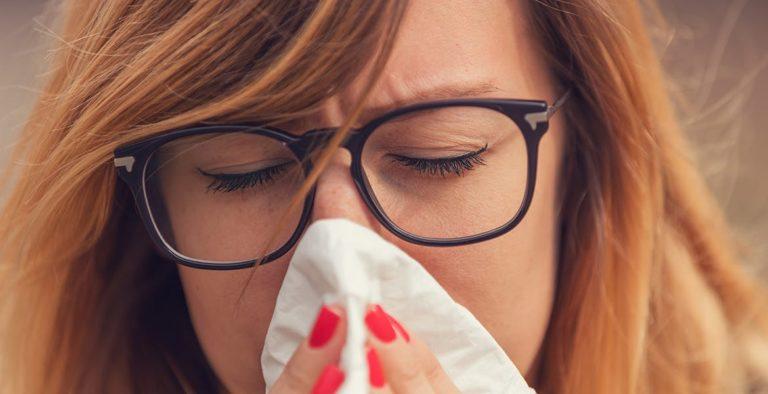On November 24, 2021, the World Health Organization received notification of a new SARS-CoV-2 pandemic, B.1.1.529 (WHO). In Botswana and South Africa, specimens of this new variant were found on November 11, 2021, and November 14, 2021, respectively.
On November 26, 2021, WHO designated the B.1.1.529 Omicron as a Variant of Concern (VOC). A U.S. case of Omicron was detected on December 1, 2021, after Omicron had been declared a Variant of Concern by the U.S. on November 30, 2021.
Despite the increased emphasis paid to Omicron, Delta remains the most common variation in circulation.
What do You understand about the Omicron variant?
As reported by world health news today, the COVID-19 Omicron variation has been designated by WHO as a variant of concern due to numerous alterations that may affect how it acts. Therefore, to determine the transmissibility, severity, and risk of reinfection of Omicron, a lot of research is being done.
How did the Omicron version come to be?
If a virus causes multiple illnesses and spreads widely, it has a higher chance of changing, the greater the chances of spreading.
New coronavirus variations like Omicron warn that the epidemic is far from finished. Further, individuals should acquire the vaccine once it becomes available and follow the existing COVID-19 guidelines to prevent transmission of the illness, such as maintaining physical separation, wearing a mask, regularly washing their hands, and keeping indoor areas well ventilated.
It is also critical that vaccinations and other public health interventions are widely available. Many of which are in Africa, lower-income nations are at the mercy of coronavirus because of vaccine inequities. Well-supplied countries must supply the dosages they promised as soon as possible.
Where is the Omicron variant present?
As per today’s news update, the Omicron variant has been found in several nations worldwide. According to the WHO, Omicron is most likely present in most nations, even if it has not been discovered.
Is the Omicron variant more severe than other COVID-19 variants?
Early evidence suggests that Omicron is less severe than Delta, but further research is needed, and WHO advises that it should not be disregarded as “moderate.” Studies are being conducted, and this material will be updated when new information becomes available.
It is vital to remember that all COVID-19 variations, including the Delta variant, can cause severe sickness or death, which is why controlling the virus’s transmission and lowering your risk of infection is so important.
Is the Omicron variant more infectious than the others?
Omicron is spreading faster than other types. As a result, the facts predict that Omicron will likely surpass the Delta variation in communities where COVID-19 is present.
However, being vaccinated and taking measures like avoiding crowded places, keeping your distance from others, and wearing a mask and maintaining healthy body is crucial in preventing the spread of COVID-19, and we know these activities have been effective against other versions.
Is the Omicron variant associated with distinct symptoms?
There is no evidence that Omicron produces specific COVID-19 symptoms than other COVID-19 variations.
Do the COVID-19 vaccinations shield against the Omicron variant?
Researchers are investigating the effects of the Omicron new variant on the efficacy of COVID-19 vaccinations. Although the information is currently limited, there may be a little decrease in the effectiveness of vaccinations against severe sickness and death and a reduction in the efficiency of vaccines in preventing mild disease and infection. However, according to WHO, the currently available vaccinations appear to provide considerable protection against severe illness and mortality.
It is also critical to get immunised to guard against other widely circulating variations, such as the Delta one. When it’s your time, be sure you’re up to date on your immunisations. If your immunisation requires two doses, you must obtain both to provide optimal protection.
Is a prior COVID-19 infection effective against the Omicron variant?
According to WHO, preliminary research shows that prior infection may provide less protection against Omicron than other types of concern, such as Delta. However, information is currently scarce, and we will provide coronavirus updates as they become available.
Even if you have already had COVID-19, you should be vaccinated. While people who recover from COVID-19 may have some natural immunity to the virus, we do not yet know how long this immunity lasts or how well it protects you. Therefore, vaccines provide more dependable protection.
Are current COVID-19 tests capable of detecting the Omicron variant?
The commonly used PCR and antigen-based fast diagnostic assays still detect COVID-19 infection, including Omicron.
Is the Omicron variation more common among children?
Omicron’s transmissibility is being studied, and we will keep you updated as new information becomes available. People who mix socially and those who are unvaccinated, on the other hand, are more likely to get COVID-19.
What can I do to protect myself and my family from the Omicron variant?
The essential things you can do is lower your chances of being infected with the virus are:
- Wear a mask covering your nose and mouth to protect yourself and your loved ones. When putting on and removing your mask, make sure your hands are clean.
- Maintain a physical gap of at least one meter between yourself and others.
- Avoid places that are inadequately ventilated or congested.
- Open windows to increase interior ventilation.
- Regularly wash your hands.
- Get immunised when it’s your turn. COVID-19 vaccinations certified by WHO are both safe and effective.
How can I talk to my child about the Omicron and other COVID-19 variants?
News about COVID-19 and now the Omicron variant is inundating our everyday lives, and it is only natural that inquisitive young children will have a plethora of questions. Here are some things to remember when explaining a problematic issue in simple words.
- Children have the right to know what is going on, but it must be done age-appropriate.
- Invite your youngster to share what they’ve heard and paid attention to their reactions. It is critical to be thoroughly engaged and take any concerns seriously. However, be patient; the epidemic and disinformation have generated widespread concern and anxiety.
- Make sure that you are up to speed on the most recent facts.
- International organisations’ websites, including UNICEF and the World Health Organization, are excellent sources of information regarding the epidemic.
- Don’t guess if you don’t know the answer. Instead, use it as a chance to work together to find the solutions.
- Remember that children take their emotional signals from adults, so if you are concerned about your child and are aware that they may feel uncomfortable, try not to overshare your concerns with them.















